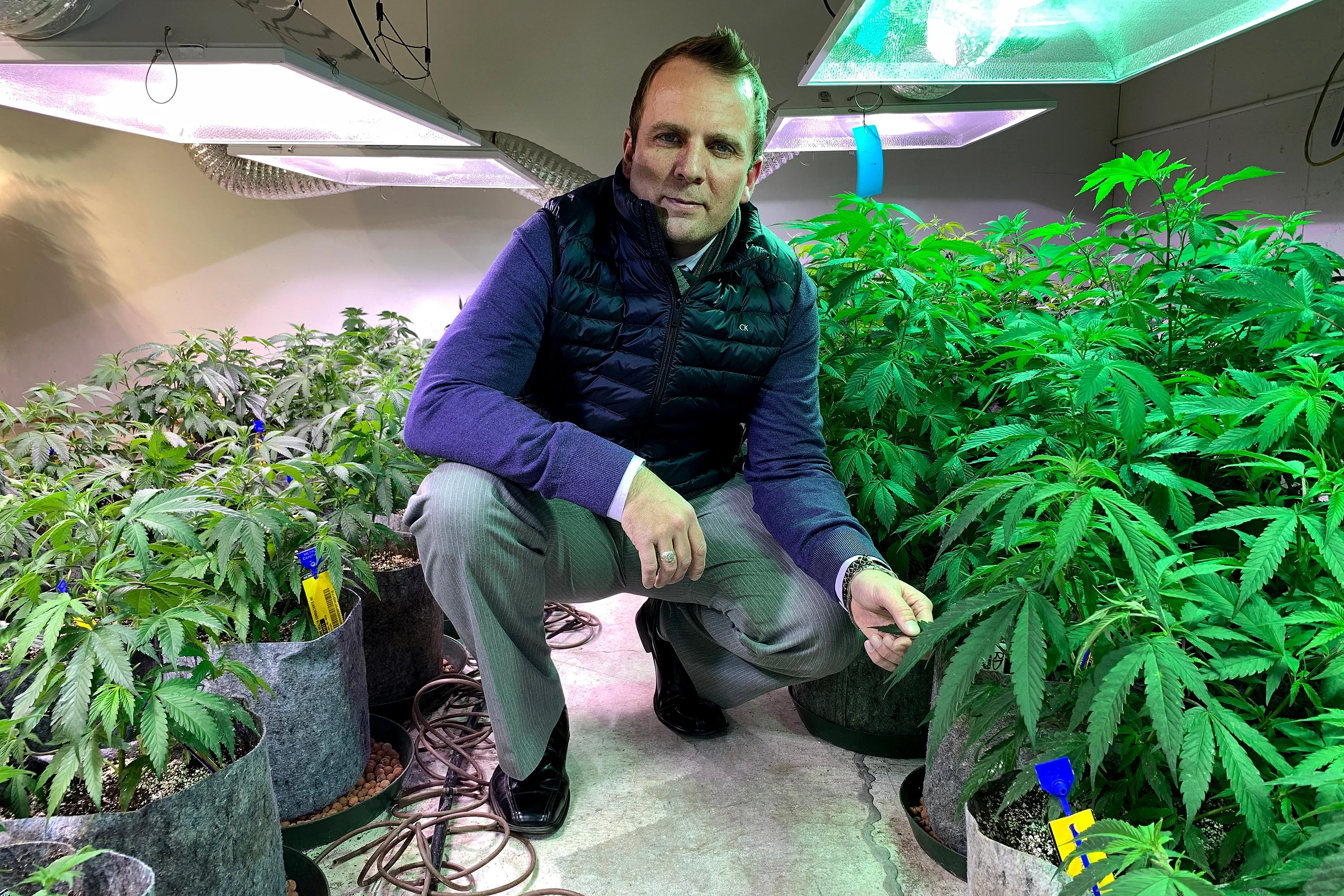

If you’re looking for recreational marijuana, then El Paso County isn’t where you want to be. By code, the county bans retail marijuana shops. Colorado Springs is the same way. But not Manitou Springs.
Their two licensed stores are the only ones in the greater Colorado Springs area. This makes them among the most valuable in the state.
Being the only nearby option for a regional county population of nearly 700,000 people has enabled Manitou’s duo of marijuana storefronts, Emerald Fields and Maggie’s Farm, to charge at least twice the market rate for their products.
The Southern Colorado Cannabis Council has pitched the idea of adding more licenses to try to bring down those high prices. Manitou City Council is collecting public comment on their recreational marijuana license limit — should they add up to two more licenses?
“Just to add one more license, I think we’d start to break that up,” said SCCC Executive Director Jason Warf.

Manitou’s pot outlets have nearly cornered the local market. Customers have to either shop in the quaint resort town, or take I-25 south to Pueblo or north to Denver. Recreational marijuana is plentiful around the Mile High City. In Denver alone, which has a population of 704,621, there are 24 cannabis stores for every 100,000 people.
Manitou Springs is a benefactor of the money recreational sales attract. Mayor Ken Jaray said a recent project to bury cable lines previously suspended on telephone poles would not have been possible without the taxes the city brings in from the two shops.
The fund the city uses for these types of projects, its Urban Renewal Authority, climbed from an average of $34,000 a year before recreational marijuana, to amassing $1.2 million in 2016.
Still, until the SCCC approached the city council to ask for more licenses, Jaray said it had not been a serious consideration.
“I think the community is comfortable with the regulations we have now, the community is comfortable with the location we’ve established, the number of stores we’ve established,” the mayor said. “I didn’t really see a need to do it, but these folks have asked us to consider it and we will consider it.”

Colorado Springs enacted a ban on recreational marijuana sales in 2013, the year before such stores could even open.
The city does allow medical marijuana sales The most recent data from the Colorado Marijuana Enforcement Division counts 128 medical dispensaries in city limits. Medical sales require that customers obtain certification from a physician and register for medical card from the state. Pure recreational sales are taxed at a higher rate, but don’t have the bureaucratic overhead of medicinal cannabis.
In December 2018, Colorado Springs Police busted eight medical marijuana dispensaries for the illegal sale of recreational marijuana.
What’s more, medical marijuana sales statewide continue to bottom out.
JP Speers, who runs Trichome Health Consultants in Colorado Springs, doesn’t try to conceal his frustration with the two Manitou shops. He estimated that all the medical shops in Colorado Springs combined probably bring in about half of what just those two recreational stores do every month. That leaves the Colorado Springs dispensaries bickering with each other over those residents who still carry medical cards.
Most of the Springs’ shops opened their doors to try to get ahead of the game, to prepare for what they hoped would be the eventual full legalization of marijuana in the city, Speers said. For many operations, it hasn’t turned out to be a smart bet.
“They’re exhausted, they’re burnt out, they’re ready to sell, they have nothing left,” he said, adding two dozen medical dispensaries are on the market to sell right now.
Colorado Springs Mayor John Suthers, who is no fan of marijuana, expects that trend to continue.
“You’ll see some consolidation, you’ll see the ‘Walmart effect,’” he said.
Suthers said the city’s health-conscious reputation and proximity to five military bases led citizens to reject recreational marijuana. Though the industry has matured a lot in the five years since legalization, Suthers does not think public opinion has changed much.
“Well, my thought is it’s still not culturally a fit, and more importantly that appears to be the view of the citizens of Colorado Springs,” Suthers said, pointing to polling by both pro- and anti-marijuana groups which found similar disapproval rates for recreational marijuana in the city.









